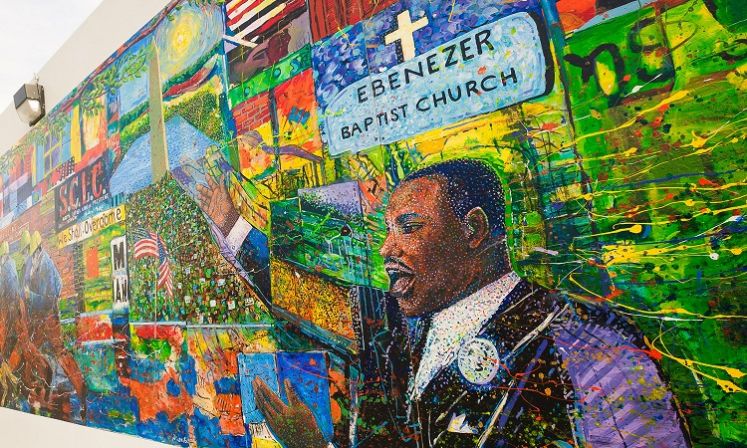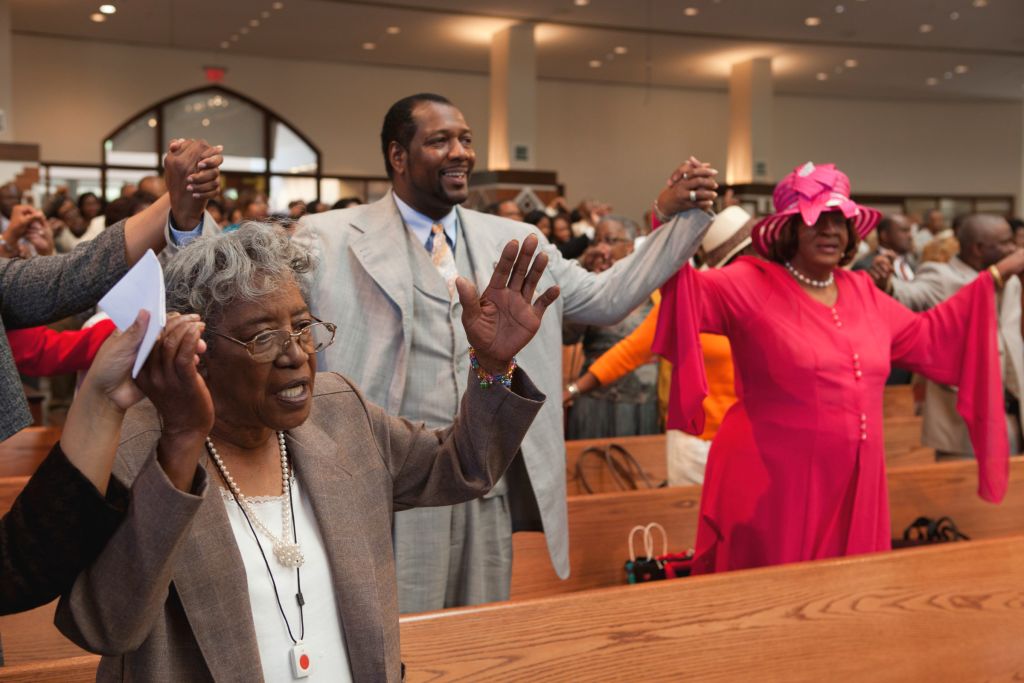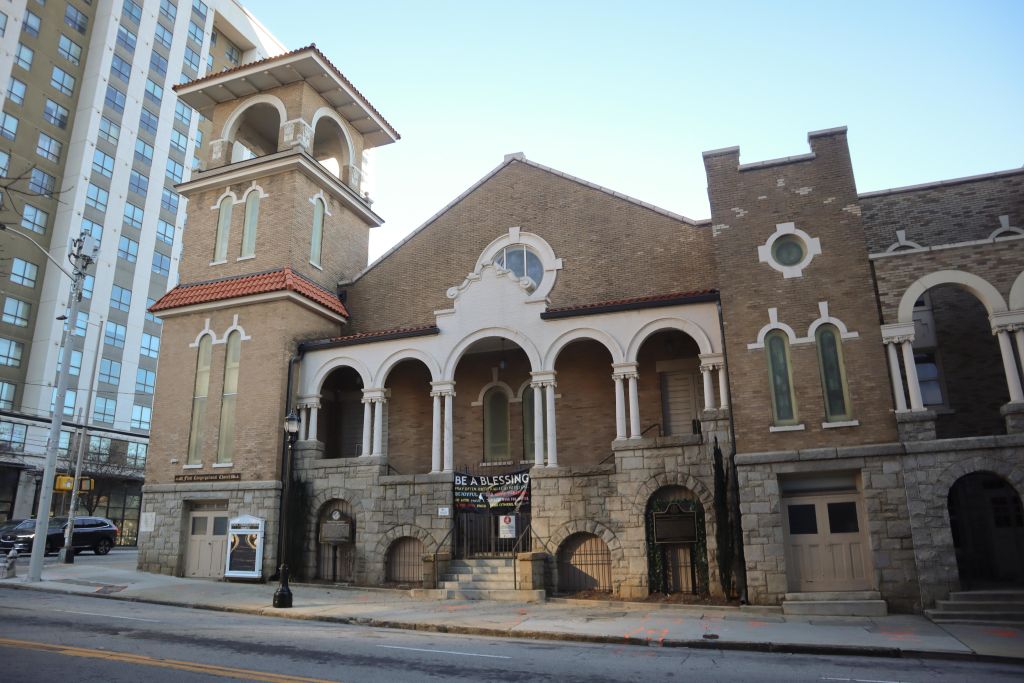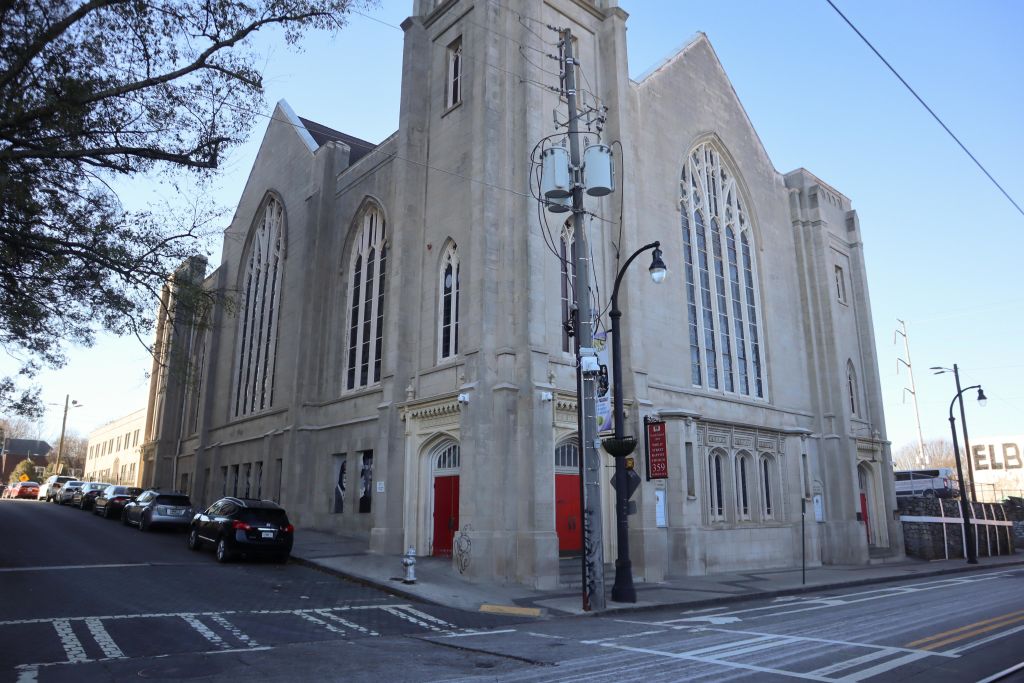Atlanta’s Black Churches and their Civil Rights Legacy
Published February 25, 2025
Atlanta was at the heart of the Civil Rights Movement, and Black churches were at the heart of the Black community. While the Ebenezer Baptist Church, where the Rev. Dr. Martin Luther King Jr. (and his father) preached, is known worldwide, several other Atlanta churches were vital to the movement.
“There would be no Civil Rights Movement without the Black church and its pastors in Atlanta,” said Dr. Herman “Skip” Mason Jr., pastor of the West Mitchell Street CME church. “Many of the Black pastors in Atlanta were central in organizing NAACP marches and activities, including supporting sit-ins with the students.”

“Historically Black churches have been significant in Black people’s freedom struggles back to the era of enslavement,” said La’Neice Littleton, director of community collaborations at Atlanta History Center. “Churches were not only a place of religious worship and community space, but they become a safe space where people could come together to advance themselves politically.”
The churches helped create a network of activists who “had many of the same belief systems in religion, politics and economics regardless of the denomination. They were the hub of the community,” she said.
Among these churches in Atlanta are:
Big Bethel African Methodist Episcopal (AME) Church
Big Bethel African Methodist Episcopal Church is the oldest African American church in the area. Its history dates back to 1866 when members of the Bethel Tabernacle Church (founded by enslavers to provide a place of worship for the formerly enslaved) united with the AME Church. Morris Brown College, established in its basement in 1881, was the first educational system in Georgia to be owned and operated entirely by African Americans. The first national convention of the NAACP took place there in 1920.
Cascade United Methodist Church
Founded in 1926, Cascade United Methodist has the distinction of having as its 18th pastor the Rev. Joseph E. Lowery, a civil rights leader and co-founder of the Southern Christian Leadership Conference.
Ebenezer Baptist Church

Founded in 1886, Ebenezer Baptist Church is best known as Dr. King’s home church. His father preached there, and his maternal grandfather became a pastor in 1894. The church’s activism is still strong, as its current pastor is the Rev. Dr. Raphael Warnock, a U.S. senator.
The First Congregational Church of Atlanta

Founded in 1867, whites and former enslaved people worshiped together at The First Congregational Church of Atlanta. The Atlanta Interracial Commission was formed there in 1919, and the city’s first all-Black Boy Scout troop started there.

The city’s first integrated public water fountain stood outside the church. Members included former U.S. Ambassador and Mayor Andrew Young, former executive director of the NAACP Walter White and first director of the Southern Field Division of the National Urban League Jesse O. Thomas.
West Mitchell Colored Methodist Episcopal (CME) Church
Founded in 1882 as the West Atlanta Mission, West Mitchell Colored Methodist Episcopal Church changed its name in 1891. The church’s leaders were active in the Civil Rights Movement, and its minister, the Rev. Robert S. Shorts, was arrested while trying to integrate the bus system. The church also opened its facilities for civil rights meetings.
Wheat Street Baptist Church

Formed in 1869 as the Mount Pleasant Baptist Church, Wheat Street Baptist Church has been an integral part of the Old Fourth Ward community ever since. Not only was the church active in the Civil Rights Movement, but it is notable for its community outreach programs. In 1881, it served as a meeting place for the Atlanta washerwoman strike and was one of the first churches (and the first Black one) to sponsor a federal credit union. The Rev. William Borders served as pastor from 1937 to 1988. He was instrumental, along with five other Black ministers, in the hiring of Atlanta’s first Black police officers in the 1940s. He was arrested in the effort to desegregate the city’s public transportation in the 1950s.
Explore more of Atlanta’s past with our Civil Rights Itinerary.
Discover More
Get to know Atlanta, and discover the best things to do around the city.
